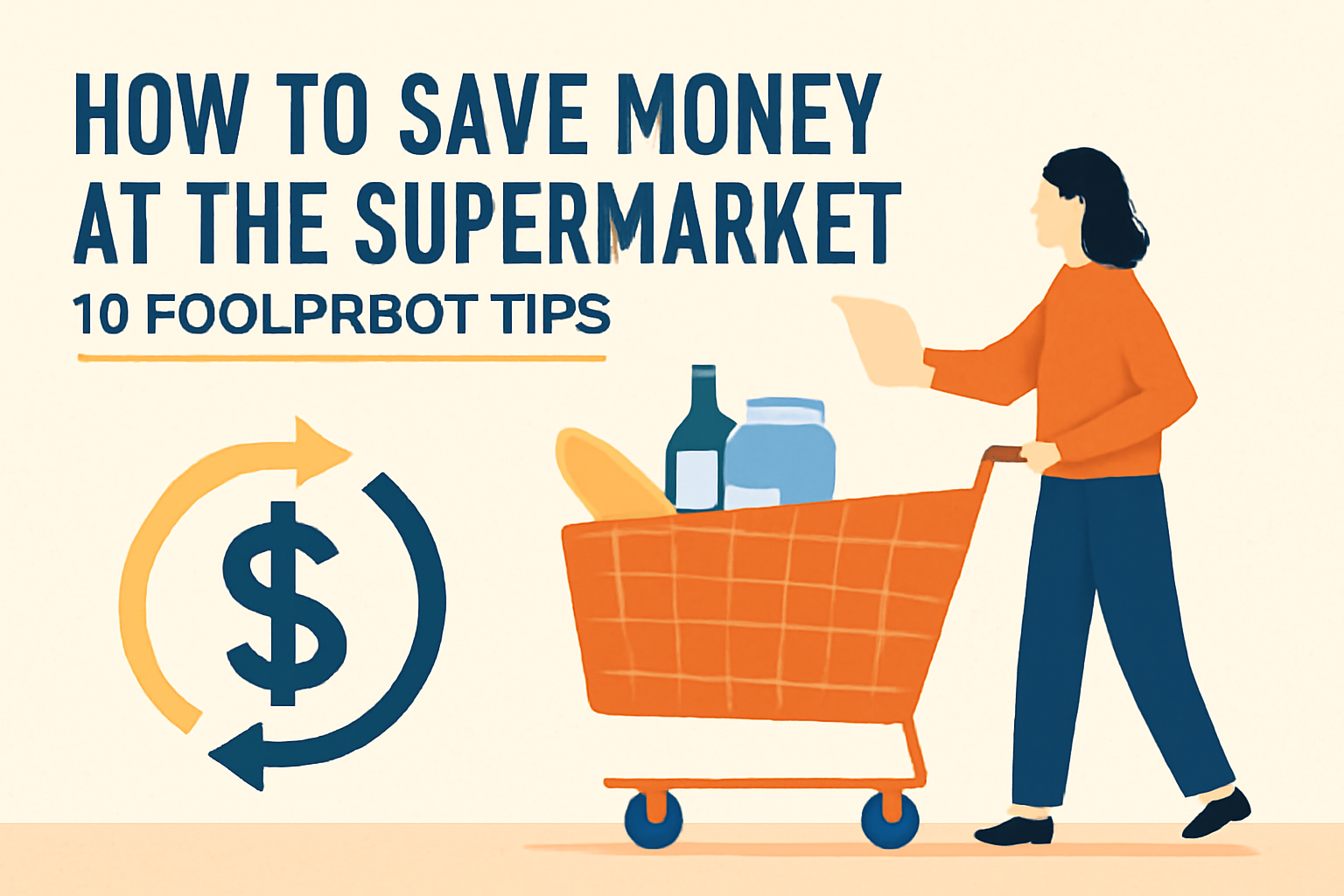Grocery shopping is one of those unavoidable tasks in life. No matter your lifestyle, location, or diet, we all need to eat—and that means frequent trips to the supermarket. But with inflation rising and budgets tightening, many people are looking for smarter ways to shop without compromising on the essentials.
Fortunately, saving money on groceries doesn’t require drastic sacrifices. With just a few changes in your habits and a bit of planning, you can significantly reduce your grocery bill. Below are 10 foolproof strategies to help you shop smarter and save money every time you go to the store.
1. Make a Shopping List and Stick to It
One of the easiest ways to waste money at the supermarket is by shopping without a plan. Walking down aisles aimlessly almost guarantees impulse buys, many of which you don’t need.
Start by planning your meals for the week, then write down all the ingredients required. Include any household essentials you’re running low on. When you get to the store, commit to that list. Avoid “just in case” purchases—those small extras quickly add up.
Pro tip: Use apps like AnyList, Google Keep, or even your Notes app to keep a digital list you can easily check off.
2. Set a Budget and Track Your Spending
Setting a budget is critical, especially if you’re trying to manage your monthly expenses closely. Before heading to the store, decide how much you’re willing to spend on this particular trip.
As you shop, track the prices of items to make sure you’re within budget. Many stores have price tags that show per-unit costs, which can help you compare value more accurately. You can also use your phone’s calculator or a grocery budgeting app like Flipp or Basket.
Bonus tip: Keep receipts and review them at the end of the month to understand your spending habits better.
3. Shop in Bulk (Strategically)
Buying in bulk is a great strategy—when done wisely. Items like rice, beans, pasta, flour, canned goods, toilet paper, and laundry detergent are perfect for bulk purchasing because they don’t expire quickly.
However, not everything should be bought in bulk. Fresh produce, dairy, or bakery goods can spoil before you use them, leading to waste and lost money.
Storage reminder: Make sure you have space to properly store bulk items. Airtight containers are great for preserving freshness and preventing pests.
4. Use Coupons and Loyalty Programs
Coupons might sound old-school, but they work. Many grocery stores now offer digital coupons through apps or websites, making it easier than ever to save.
Loyalty programs often reward you with discounts, points, or cashback on certain purchases. Some stores even personalize coupons based on your buying habits.
Smart move: Stack savings by combining a loyalty discount with a manufacturer’s coupon. Also, consider using coupon apps like Honey, Rakuten, or Ibotta to automate part of the process.
5. Buy Seasonal Produce
Produce prices can vary significantly depending on the season. Strawberries, for example, might be half the price in summer compared to winter. Buying in season not only saves you money but also ensures you’re getting fresher, better-tasting fruits and vegetables.
Extra tip: When your favorite seasonal produce is at its lowest price, buy in bulk and freeze portions for later use.
If you’re not sure what’s in season, a quick online search for your local area or asking at a farmers market can help.
6. Avoid Pre-Packaged or Pre-Cut Items
Convenience costs money. Pre-sliced fruits, pre-shredded cheese, or pre-marinated meats are often significantly more expensive than their whole counterparts.
By taking a little extra time to cut, shred, or prepare food yourself, you can save a surprising amount over time.
Example: A block of cheese is typically cheaper per gram than a bag of shredded cheese—and it often tastes better when freshly grated.
7. Compare Prices Across Stores
Loyalty to a single supermarket can cost you money. Different stores have different pricing strategies, and one store’s regular price may be another’s weekly discount.
Take time to compare flyers or online ads for your local stores. Some stores offer price matching if you show a competitor’s lower price.
Pro tip: Discount chains, warehouse clubs (like Costco or Sam’s Club), and local ethnic markets often have excellent deals, especially on staple items and produce.
8. Don’t Shop When You’re Hungry
Science backs this one up: shopping on an empty stomach leads to more impulse purchases—especially of high-calorie, processed foods.
Make it a rule to shop after a meal or bring a small snack if you’re out. When you’re full, you think more clearly and are less tempted by those chips or chocolate bars at checkout.
9. Choose Store Brands Over Name Brands
Store-brand products, also known as private-label or generic brands, often come from the same factories as the big-name brands but cost significantly less.
Whether it’s cereal, pasta sauce, or even over-the-counter medications, trying the store brand can save you up to 30% on many items—without sacrificing quality.
Tip: Test a few store-brand alternatives each shopping trip to find your favorites. You might be surprised at how good they are.
10. Be Careful With “Buy One, Get One Free” Deals
BOGO deals can be great—but only if you actually need both items and will use them before they expire. Otherwise, you’re just spending more now for something that might end up in the trash.
Before grabbing a BOGO item, ask yourself: Would I have bought this if it weren’t on sale? If the answer is no, skip it.
These deals are designed to encourage volume purchases, which can increase your total spending if you’re not careful.
Smarter Shopping Leads to Bigger Savings
At the end of the day, saving money at the supermarket is less about being frugal and more about being intentional. With a bit of preparation, a clear strategy, and the willingness to change a few habits, anyone can start spending less without compromising quality or nutrition.
Make it a goal to implement one or two of these tips each week. Over time, they’ll become second nature, and the savings will start to accumulate. Whether you’re feeding a family or shopping for one, these foolproof tips will help you make the most of every grocery trip—and keep more money in your pocket.

